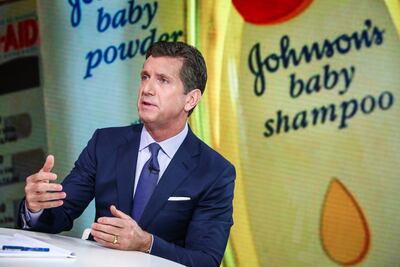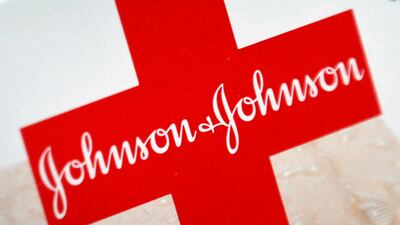Johnson & Johnson is splitting into two companies, peeling off the division selling Band-Aids and Listerine from its medical device and prescription drug business.
The world’s biggest maker of health care products, founded in 1886, said Friday the move will help improve the focus and speed of each company to address trends in their different industries.
The company selling prescription drugs and medical devices — J&J’s two largest businesses — will keep the Johnson & Johnson name. That company sells treatments such as Darzalex, Erleada, Imbruvica, Stelara and Tremfya as well as medical devices for orthopaedics and surgery.
The new consumer health company, which has yet to be named, will house brands including Neutrogena, Aveeno, Tylenol, Listerine, Johnson’s and Band-Aid.
The move by the world's largest health products company comes hot on the heels of similar announcements this week by industrial conglomerates Toshiba and underscores how big, diversified corporations are under pressure to simplify.
This has particularly been the case in healthcare, where the slow-and-steady business of selling products such as shampoos and moisturizers has increasingly diverged from the high-risk, high-reward work of developing and marketing blockbuster drugs.
"The new Johnson & Johnson and the new consumer health company would each be able to more effectively allocate resources to deliver for patients and consumers, drive growth and unlock significant value," said Joaquin Duato, who is expected to become chief executive officer in January.
The company said it was aiming to complete the separation in 18 to 24 months.
Johnson & Johnson's Band-Aids and cough remedies have long been the face of the company.
Now its pharmaceutical and medical equipment business, which makes cancer treatments, vaccines and surgical tools, is on track for nearly $80 billion in sales this year, way ahead of the $15 billion its consumer products are expected to bring in.
The higher growth outlook comes despite disappointing sales of Johnson & Johnson's Covid-19 vaccine following a string of production setbacks and fierce competition from rivals such Pfizer and Moderna.

The split comes as J&J deals with criticism from some US Democrats in Congress over another corporate move. J&J is facing thousands of lawsuits claiming that its talc-based baby powder, which it has stopped selling in the US and Canada, caused ovarian cancer. The product is still sold in the UK and other parts of the world.
A North Carolina judge earlier this week agreed to temporarily halt nearly 38,000 lawsuits against J&J over the claims.
But the cases have only been delayed for 60 days, and the judge ruled that the case should instead be heard in New Jersey, where the company is headquartered.
Chief executive Alex Gorsky said on Friday the decision to separate the consumer division had nothing to do with the lawsuits.
The company said in August that Mr Gorsky will step down and be replaced in January by longtime company executive Joaquin Duato.
The medical device and pharmaceutical division has also faced lawsuits for some of its other products.
Johnson & Johnson said last month it had settled most suits it faced from thousands of men who claimed its anti-psychotic drug Risperdal caused them to develop excessive breast tissue. The company has recorded $800 million in expenses in connection with the agreement.
Agencies contributed to this report

